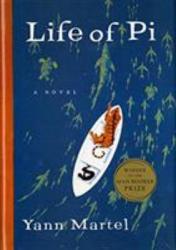
Life of Pi starts off slowly, with a lot of details that I thought were irrelevant to the story. While Pi is moving with his family and their zoo, their ship sinks in a storm. Pi makes it to a life boat, but there are also four animals from the zoo on it. One of the animals is a tiger, which Pi must learn to control. He must also get food, water, and protection from the sun and sea in order to survive. This book shows the struggles to survive while isolated from society and also shows the fight to retain one's humanity throughout this struggle.
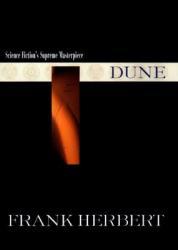
I chose to read Dune in anticipation of the coming movie, and as a much appreciated suggestion from my father. Dune follows the adventures of a young boy Paul as he enters manhood. He fights to keep the planet of Arrakis, and then goes on to fight for the title of emperor. It addresses a group of people, the Fremen and their religion of turning Arrakis, the desert planet, into a beautiful land through terraformation. This book draws you in and keeps you hooked, telling a story of becoming a man, while also making it a book worthy of praise, always surprising you with one twist or another.
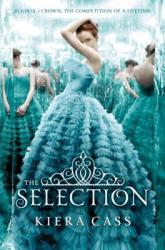
The Selection by Kiera Cass, is the first book in The Selection series. I have read this book multiple times for it is one of my favorite stories. With intriguing twists, the story carries you through the story of America and her journey into the unknown. While this story has many parts that have you on the edge of your seat, I also found myself feeling scared, angry, happy, sad, and many more emotions. With an interesting love triangle, the romance parts are what keep you drawn in. A book has never stood out to me in the way this story has.
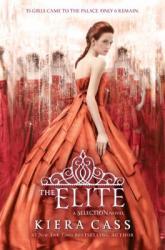
The Heir by Kiera Cass is the second book in the series The Selection. While this is one of my favorite series, this book is my least favorite of the three books. Even with turning twists and unnerving events, I feel the story did not get too far along with the plot. This book was still very well written and gave us a backstory on many characters. Although it was my favorite book, I highly recommend the read for it will help readers understand the third and last book of the series. Overall, this book was thought out well and brings many new emotions to the readers.
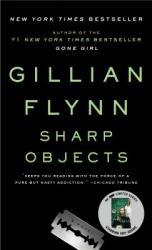
Sharp Objects is about a writer who must go back to her small hometown to report on the disappearances of young girls. The book is very interesting the whole time and is one I was not able to put down until I had finished. The ending is nothing even close to what I would have ever pictured, and it is never even hinted towards. The book overall is quite disturbing though. From the topic of extreme self harm to very inappropriate behavior from quite young girls, there were many moments that were disgusting.
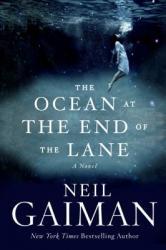
The Ocean at the End of the Lane is set when the protagonist returns to his childhood town for a funeral. He drives aimlessly down a lane and arrives at the Hemstock Farm, where he starts to remember part of his childhood. Throughout the book, the protagonist recalls his fanatical past, which he forgot about Lettie Hemstock and the Hemstock farm. The author does a fantastic job of describing the protagonist and blending the fantasy world in perfectly. This book always surprised me, although some parts can be a little confusing, but personally, I found this book to be an interesting read and would give it 5 out of 5 stars.
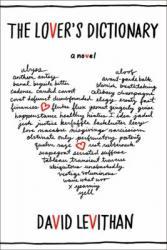
The book "The Lovers Dictionary" by David Leviathan gets a "meh" review. While the book seems like it'll be a hopeful love story, it actually spins a web of lies and heartbreak. Each chapter is a new word, and the chapter explains the definition, through a story. While this seems to be a cool idea, it was not well planned out in this book. Sudden changes in setting, as well as changes in the timeline, leave this book quite confusing. It makes you want to get entranced by the book, but also makes it difficult to do so. Had the author better explained both the timing and the reasoning behind the flashbacks of sorts, the story would have been better able to comprehend and relate with. The story also has these thought-changing scenes that make no sense. One second the narrator is madly in love and very happy about it, and the next he is broken-hearted and considering leaving his partner. The constant back and forth is difficult to follow and honestly quite frustrated. I think the idea of the book was a great idea, however, I do not believe the author knew quite how to plan it out.
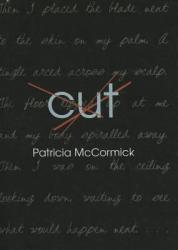
This book tackles some very tough topics in very realistic and accurate ways. Main character Callie has been placed into a residential treatment center, shortly after her family discovers that Callie had begun to use self-harm to cope with many issues. The stress of being in this facility, as well as familial and mental stress, leads Callie to silence. Acting on selective mutism, Callie chooses to stop talking. Many people try, and yet fail, to help her open up and speak. Through the book, from memories and dialogues that run through Callie's brain, we discover that Callie has an extremely stressful home life that has become detrimental to her mental health. This book speaks on the reality of mental health facilities in America, as well as the type of home life that many live and suffer through silently. This story faces the reality of self-harm and mental illnesses. These topics are very uncomfortable for many, and almost taboo, but "Cut" breaks through that and breaks down the walls of real-life issues, and progress through mental health issues.
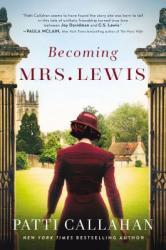
Becoming Mrs. Lewis, by Patti Callahan, is the fictionalized retelling of C.S. Lewis and Joy Davidman's unlikely love story. It is based around the correspondence between the two, their writings, and Joy's copious love sonnets. While C.S. Lewis is primarily known for his works of literature, his relationship with Joy was just as big--if not bigger--a part of his life as his work. The story is told entirely from Joy's perspective, with bits of correspondence sprinkled throughout her narration. Right out of the gate, Joy has an epiphany one night while living in a house in upstate New York with an abusive husband and two small sons. This holy experience leads to Joy's conversion to Christianity; then, searching for answers about faith, she comes into contact with the renowned author C.S. Lewis and they begin corresponding frequently. Eventually, Joy makes the choice to go to England because of health problems and her husband's abuse, and meets C.S. Lewis (whom she calls Jack) for the first time. The rest of the book is an agonizingly slow journey to their marriage, which happens under unfortunate circumstances at the very end.
I had awfully mixed feelings about this book. I was interested in learning more about the life of C.S. Lewis, but instead I received the sad, angsty story of Joy Davidman, and unfortunately, Joy Davidman--as portrayed by Callahan--is not a likeable character. She is impulsive in nearly all her actions, self-pitying and self-motivated (as exhibited by the fact that she leaves her two young sons in an abusive household while frolicking off to Europe), naive, obnoxious in much of her dialogue, excruciatingly desperate to be loved, and altogether irritating. However, I did like Jack's character, and overall there was some good character development. The plot itself was slow and redundant: dialogue dragged and nearly every conversation felt the same to me; I often found myself bored. It seemed like Callahan was running the plot in circles without ever achieving a climax. Also, as the story took place over several years in real life, Callahan was forced to glaze over several months at a time, never really going in depth about what took place in between Joy and Jack's meetings. As for the writing style itself--nothing to compliment. Callahan's syntax was unengaging and at times poorly executed, the story lacked imagery, and the use of British slang seemed forced, coming from an American author. Over the course of the book, Joy's feelings for Jack develop more quickly than his for her, and I couldn't help feeling disturbed by her physical attraction to a man 17 years older than her. Callahan should've backed off on Joy's excessive, out-of-the-blue thoughts of physical desire--they were disturbing and took away from Jack and Joy's friendship.
I believe the love story of C.S. Lewis and Joy Davidman would've been best left alone. While Callahan's novel is historically accurate, the fictionalization of intimate details and dialogue that belonged to the real Joy and Jack in their time did not sit well with me. I appreciated Callahan's inclusion of literary history--especially learning about Jack's life and how
it influenced his writing--and the last fifty pages of the book redeemed itself slightly, as the characters' growth was revealed and some important life lessons shone through. Occasionally I was immersed in the story and
rooting for Joy, but the mundane, repetitive, boring moments overshadowed those, and Callahan's Joy was not the female character I'd hoped she would be. I wouldn't call this book a romance, because it's simply desperation on
one side and friendzoning on the other until a dire situation wakes up the latter party to reality. Becoming Mrs. Lewis did not do it for me, and I don't recommend it unless you immensely enjoy poorly-written, many-liberties-taken fictionalized accounts of famous historical figures' lives. I believe Joy Davidman and C.S. Lewis were probably wonderful individuals in reality, and I wish Callahan had done them justice.
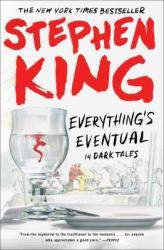
I read this book because I watched the movie “1408” which is based on the short story by Stephen King thats in “Everything’s Eventual” and I wanted to see if the book was as good as the movie. Everything’s Eventual is a book that’s full of short story’s, and while I didn’t like a few, there was also a couple really good ones! I would highly recommend one of the short story’s called “The Road Virus Heads North”. It has actually become one of my favorite Stephen King stories. Also, I personally thought it was one of his creepiest. Overall, if you are a big Stephen King fan like me, I would recommend reading this book.
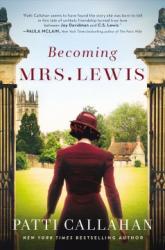
f you are a fan of C.S. Lewis, and perhaps were introduced to Joy Davidman through the movie, "Shadowlands", this in-depth look at her life, and struggles before she first began her correspondence with Lewis. Already a prolific poet and writer, Davidman was extremely well-educated and had been a child prodigy. This is an evocative account for her search for God, her quest for peace during a strained first marriage, and ultimately, coming to terms with the illness that took her life after finding fullflling love with C.S. Lewis. The book is well-researched, but is a novel that is written in the first person.
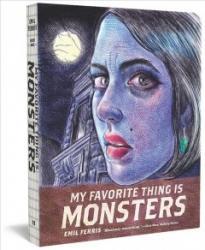
A lot of people put down graphic novels as just comic books and many are little more than that. But there are a few that transcend this genre. My Favorite Thing Is Monsters, Vol. 1 is such an example. This debut novel by Emil Ferris tells the story of 10-year-old Karen Reyes, a girl growing up during the turbulent 1960s in Chicago. Reyes is an aspiring artist and her story is told in her perspective with detailed drawings filled with B-movie horror monsters from her beloved matinees, all sketched by a very talented schoolgirl with a Bic pen in her spiral notebook. Her neighborhood is a scary place and so is dealing with her mother's late-stage cancer and her older brother's drug-dealing and pimping. It's why Karen wishes she was a monster -- to be safe from those she sees in real life. As just a family drama, this novel delivers. Then this beautifully illustrated work of art reminiscent of Robert Crumb and Otto Dix, becomes so much more. The ever-curious Karen decides to solve the murder of her enigmatic upstairs neighbor, a Holocaust survivor. That sudden plot twist turns this work into an historical epic, a detective story and a psychological thriller that garnered numerous industry accolades and award nominations worldwide. Vol. 1 is currently available through PPLD while Vol. 2, the conclusion of the story, is scheduled to be published in September 2021.
AWARDS: 2018 Eisner Award for Best Graphic Album-New, Best Writer/Artist and Best Coloring; 30th Annual Lambda Literary Award for Best LGBTQ Graphic Novel.
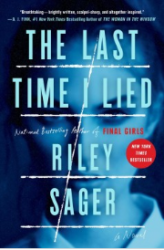
This was a very intriguing and easy to read! I stayed interested in all the characters and thought the plot was well developed.
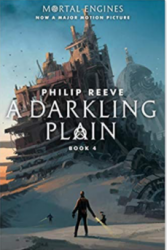
With the way Infernal Devices ended, I immediately knew there had to be a fourth book to finish this unique series. Few books resolve their respective series as well as A Darkling Plain does, which I can appreciate. In fact, the final epilogue was as beautiful as it was tragic. Along the way, the little loose ends tie up nicely so that all the characters are given some closure—whether or not they deserve it.
I wasn't wild with the time-skip tactic that Infernal Devices used since it basically split this series into two larger stories. Mortal Engines and Predator's Gold covered Hester and Tom's relationship, while the last two books covered their daughter's adventures. Of course, I was shocked with the ending of Infernal Devices, which did get an explanation in this book, even if it lessened the impact of that plot twist. That being said, some of the characters' fates were foreshadowed well ahead of this book, which left their ultimate fate somewhat anti-climactic.
Overall, I enjoyed how the idea of mobile cities eating each other in an evolutionary survival of the fittest came to its logical conclusion in this book. It's such a peculiar concept that was thoroughly explored in the previous three volumes so that this book could wrap up this phase in the post-apocalyptic timeline with enough room to give some hope for a future. After all, I have yet to run across a science fiction series that combines so many tropes so well and manages to conclude its complicated plotlines in such a satisfying way.
A satisfying ending of a unique series, I give A Darkling Plain 4.0 stars out of 5.

Those of us who have seen Netflix’s adaptation of The Witcher will find this collection of short stories quite familiar. The first book in the series, The Last Wish introduces the titular Witcher, Geralt of Rivia, as he goes about his job ridding the world of dangerous supernatural creatures. It’s no wonder the TV series felt a little disjointed, as it had a series of short stories that were loosely connected via Geralt to work with. Still, these stories are solid and help flesh out the world where humans and creatures live together, rarely in harmony.
Told in a somewhat chronological manner, these bite-size stories often carry over and blend into each other in a way that feels natural. Actions in one story may influence the characters in another, so there is something deeper here than just a collection of short stories. While this technique is rarely used, I can appreciate how each story has a purpose in advancing the main character's overall story. That being said, not every story is as enthralling as trying to save a noble’s daughter from a curse (which was one of the best in the set).
Part of why I like this method of storytelling is how simple it is. There’s no huge overarching and complex series of events here. The only character that matters is Geralt and how he reacts to the people around him and the jobs he takes to pay the bills. While additional characters like Yennefer or Ciri help to round out the series, focusing on the series’ namesake is important for building a foundation for world-building. I almost wish more series would take this route, as it helps establish the lore before diving into the first “official” book's main plot.
Great character foundation through multiple short stories, I give The Last Wish 3.5 stars out of 5.
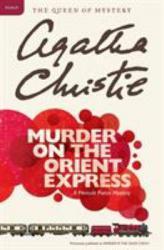
Murder on the Orient Express is the story of detective Hercule Poirot who is taking the train the Orient Express when a man gets murdered on board. With the help of the the doctor and other staff members on board, Poirot plans to solve the murder before the train arrives at its destination and the murder is free to walk away.
This book is very well written and has many plot twists so you are constantly looking forward to what comes next. I would recommend this book to anyone who likes a good mystery. It is fairly easy to understand and could be easily read by anyone 5th grade and up.
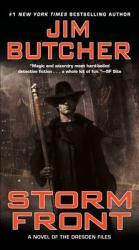
Jim Butcher brings to life a world filled with magic. This does not save Harry Dresden from very real problems - keeping up with rent, car troubles, and more. This gives the story a grounding in reality that makes aspects of it relatable, despite its focus on the supernatural. Dresden is stubborn, but he always tries to do the right thing. As he tries to solve multiple homicides and searches for a missing person, he finds there is something darker going on than he first believed. His race against the clock adds a thrill that makes the book hard to put down.
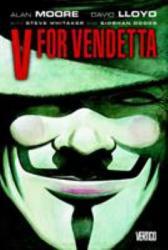
V for Vendetta follows V as he fights against an authoritarian government and trains a successor. The book questions the cost of losing art, literature, and beauty in an attempt to create complete control over society. The art adds another dimension to the story, and the colors used in V's house compared to the outside world emphasize the underlying message. V's character is captivating because he possesses such knowledge and culture yet brings destruction. This leads readers to consider the necessity of violence to preserve culture. V's mask holds similarities to Guy Fawkes', and certain actions between the two are also similar, adding historical parallels to the story. V's strong ideals and actions to back them up lead him to become the face of a revolution but at what cost?
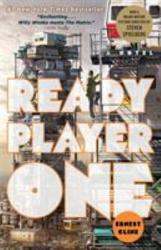
Ready Player One, a book by Ernest Cline, takes place in a dystopian future in 2045. The majority of the population spends most of their time inside a massive VR MMOSG, massively multiplayer online simulation game, called the Oasis. When the billionaire creator of the Oasis died, he left clues for an Easter Egg that he had hid in his game, and the first one who finds it gets his entire fortune. This story is about the adventure of Wade Watts, a kid from the Stacks in Columbus, Ohio, as he searches for that egg. This book is amazingly written, and you will be wanting to know what happens next as you read. You may have seen the movie, but the book is a masterpiece, the story is much richer, and definitely worth the read!
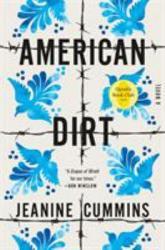
I really enjoyed this book and the author's style and her ability to draw you in. She is very detailed in her descriptions with the main character's relationships and she causes you to become aware of issues in Mexico in a manner you may not have considered. While the book has received much criticism (you can research this), I think it is a worthy read to make us all want to dig deeper into the migrant situation.



 Ruth Holley Library will be temporarily closed for approximately one week starting Mon., Dec. 2 to complete roof repairs.
Ruth Holley Library will be temporarily closed for approximately one week starting Mon., Dec. 2 to complete roof repairs.